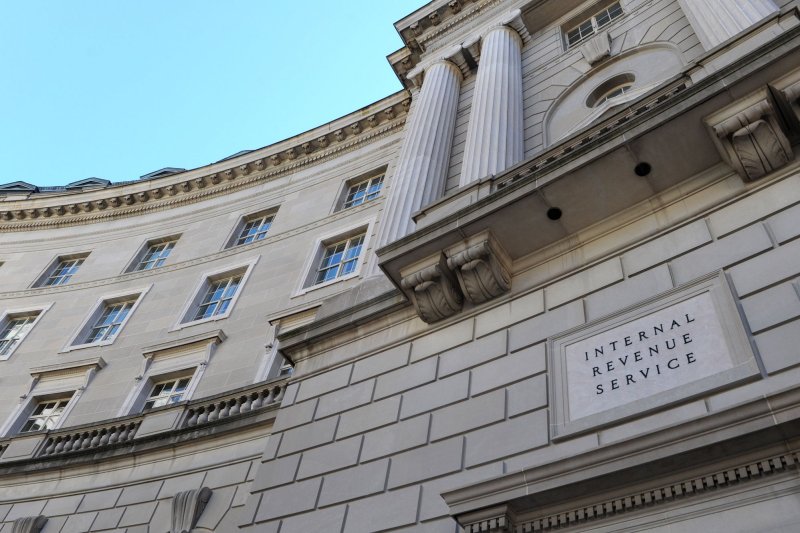1 of 3 | The National Taxpayer Advocate said the Internal Revenue Service is "in crisis" after it has been forced to deal with a large backlog of tax returns from 2020 and complications related to the COVID-19 pandemic. File Photo by Kevin Dietsch/UPI |
License Photo
Jan. 12 (UPI) -- A government watchdog report released Wednesday said the Internal Revenue Service is "in crisis" as it is saddled with a backlog of millions of tax returns from 2020.
The report by the National Taxpayer Advocate said that the IRS began the last filing season with a backlog of 11.7 million returns from 2020 and was not able to clear returns from 2019 until June 2021.
"The IRS is in crisis and needs to apply resources to its core mission -- processing returns and paying the corresponding refunds," Erin Collins, head of the independent watchdog organization wrote.
As of mid-December, the IRS had 6.2 million unprocessed individual tax returns, 2.8 million unprocessed business returns, 2.4 million unprocessed amended individual returns, 427,000 unprocessed amended business returns and approximately 4.75 million pieces of general taxpayer correspondence.
"There is no way to sugarcoat the year 2021 in tax administration: From the perspective of tens of millions of taxpayers, it was horrendous," Collins wrote.
As a result of the COVID-19 pandemic, Congress tasked the IRS with administering several financial relief programs including three rounds of stimulus payments, monthly Advance Child Tax Credit payments and reduction of the taxability of unemployment compensation amid the 2021 filing season, the report notes.
Additionally, the IRS reported more than 11 million "math error notices" requiring taxpayers to submit a response to the error and "potentially delaying refunds by many months."
The report also found that amid the slow filing year, taxpayers experienced difficulty finding answers to their questions for the agency.
IRS customer service representatives answered 11% of the approximately 282 million phone calls received by the agency last year, more than twice as many as the year before.
Taxpayers also attempted to use the online "Where's My Refund?" tool about 130 million more times than the previous year to check the status of their payment but the tool was not always able to provide an adequate answer to their questions.
"The tool does not explain any status delays, the reason for the delay, where the return is in the process or what needs to be done," the report states. "It just reflects that the return has been received, that the refund was approved, or that thre refund was sent."
Collins noted that while many of the issues cited in the report were exacerbated by complications related to the pandemic, they also resulted from "longstanding underfunding" of the IRS.
"Over the past year, there has been a tendency to focus on the unique challenges posed by the pandemic and to attribute IRS service and technology shortcomings to these circumstances," she wrote. "There is no doubt the pandemic has had a big impact, but taxpayer services and technology at the IRS were inadequate long before the pandemic."
The report comes after the IRS on Monday warned that acute staffing shortages and remaining backlogs will likely delay tax refunds and other services this year, adding there are no immediate plans for an extension to tax filing season.
President Joe Biden announces how the Bipartisan Infrastructure Law will rebuild America's bridges in the South Court Auditorium of the Eisenhower Executive Office Building near the White House in Washington, D.C., on Friday. Photo by Ken Cedeno/UPI |
License Photo
















